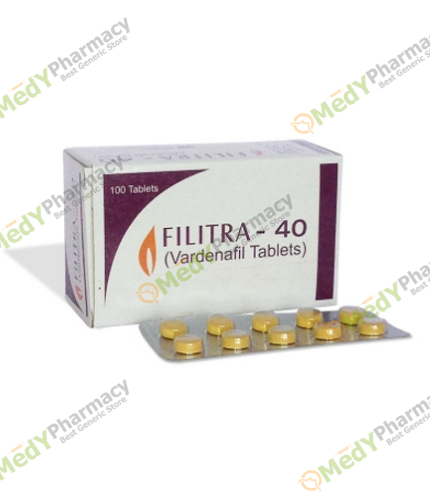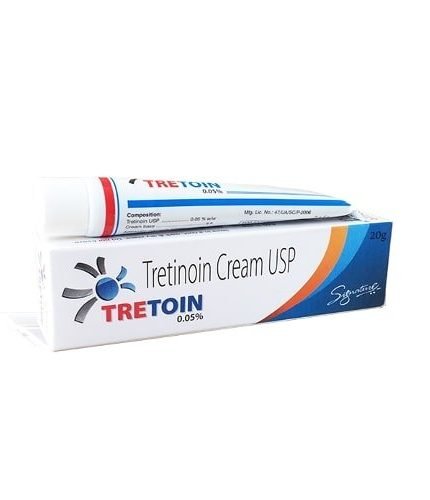Introduction:
Chronic distress in both men and women can result from different types of problems. Undoubtedly, one of the most dreaded illnesses is triggered asthma. Additionally, it is a chronic illness that is incurable.
It may be difficult to manage the condition, no doubt. Methylprednisolone and other drugs are constantly required to manage it.
That being said, you need to be aware of certain trigger points for the illness. The disease also results from some of the things we do by accident. Our nutrition is frequently one example of this.
According to some recent research, some foods may cause the illness. You don’t have to drastically alter your diet because of it.
But you must watch out for meals that might cause the illness. A deeper reflection on this is important. Therefore, we will talk about this without further ado.
Chemicals, dietary additives, and foods are not frequently known to cause asthma attacks. This is seldom brought on by them alone, but it can be brought on by a food allergy or an intolerance response.
An allergy occurs when the body’s immune system overreacts to something that most people consider to be innocuous. Another name for these compounds is allergens. Allergen exposure can irritate or enlarge parts of the body, including the skin, lungs, eyes, nose, and airways.
Anaphylaxis is the name for a severe food allergy reaction that can be fatal.
This can occasionally be mimicked or caused by dietary allergies. For more information on suggested diets for asthmatics, specific foods to avoid, and foods that can help you, continue reading.
If you suffer from asthma, you are aware that some meals might cause an attack. The good news is that you may prevent an attack by taking precautions and understanding which foods to avoid. It may cause asthmatics to have issues. Steer clear of these foods to keep yourself healthy and safe.
In this chronic lung condition, breathing becomes difficult due to restricted and inflammatory airways. This is incurable, it may be managed with medication and avoiding triggers. Diet is important because although certain foods might reduce edema, others can make symptoms worse.
What is Asthma?
People who have this chronic lung ailment have trouble breathing. Breathing becomes challenging for those with asthma because their delicate airways can get irritated and constrict. Some things that can cause this include dust, smoke, pollen, and even food.
Allergies to certain substances, such as foods, can result in allergic asthma. Non-allergic can be brought on by cold air, physical activity, or mental stress, but it is not brought on by an allergy.
Although managing the symptoms of this ailment can be challenging, there are therapies available. Seeking a diagnosis from a physician is crucial if you suspect that you or your kid may have asthma. Those who have this can have active, normal lives if they receive the right care.
No one food or vitamin can alleviate asthma symptoms on its own, according to preliminary data. A balanced diet full of fresh fruits and vegetables, however, could be beneficial for those with asthma.
Regarding allergies, food also matters. A food allergy occurs when the immune system overreacts to a particular protein in a meal, which can occasionally aggravate asthma symptoms.
The worst and healthiest meals for asthmatics to consume and avoid are listed below.
The Best Diets for Those Who Have Asthma
For those with asthma, there aren’t any established dietary guidelines at this time. Reviews of recent research suggest greater investigation using more exacting assessment techniques. This cannot be alleviated by a single meal or vitamin, according to preliminary data.
As an alternative, a well-balanced diet rich in fresh fruits and vegetables may help asthmatics. Recent decades have seen a rise in asthma cases, which may be related to a move away from consuming fresh meals like fruits and vegetables and toward processed foods.
Discovered conflicting results on the impact of short-term diets on asthma symptoms after examining the science underlying the various components of Mediterranean-style diets. Nonetheless, the researchers believe that a sustained dedication to a healthier diet is more likely to benefit asthma and general health.
Why Can Food Induce Asthma?
Fortunately, eating does not frequently provoke asthma attacks. These are triggered by specific meals for about 6–8% of children and 2% of adults with the condition.
- Your symptoms are triggered by an allergic reaction to a meal that you are allergic to.
- Your symptoms are triggered by specific foods that you are sensitive to.
This is frequently linked to inflammatory reactions in the body, dietary allergies, or sensitivities. Working with an allergist is crucial for controlling food-induced asthma, as is recognizing and avoiding trigger foods.
Asthma and Diet: What Foods Can Cause Issues?
Our diet has a big impact on our bodies. It influences the way we react to outside stimuli. It also influences the way our whole body functions.
This may affect respiratory features as well. This also has an impact on a condition like asthma. Some foods can cause the illness.
Some meals might indeed aggravate asthma symptoms and cause further suffering. Frequently, foods that include sulfites and salicylates might cause issues.
This is more common in those who consume certain kinds of foods more often. Their reliance on Medrol 16 tablets will grow significantly.
How Do Nutrition And Asthma Relate To Each Other?
Certain meals may improve lung function, strengthen the immune system, and lessen the symptoms of asthma, according to some studies. Additionally, some foods may trigger a flare-up or exacerbate symptoms.
Consuming a diet high in fruits and vegetables might lower the chance of getting asthma and lessen symptoms like wheezing.
There are allergens in various meals that might cause reactions in certain individuals. For instance, sulfites are a preservative found in pickled foods, dried fruits and vegetables, wine, beer, shrimp, and a few other goods.
Additionally, obesity might make asthma symptoms worse. A reasonable body weight can be maintained by those with asthma by staying active and eating a diet high in fruits and vegetables and low in fat.
Is It A Food Allergy Or Intolerance?
- Food allergies
When your body’s immune system responds to particular foods, it’s called a food allergy. Although the most frequent food allergies are to eggs, cow’s milk, wheat, peanuts, tree nuts, soy, and shellfish, you might have an allergy to any food.
Any region of the body, including the airways, can be impacted by an allergic reaction to food. Some individuals with a food allergy may experience symptoms of asthma as a result.
Avoiding the offending item entirely is the best strategy to avoid an allergic response if you have a food allergy. Dietary allergy responses can occur rapidly, and a strong allergic reaction can be fatal.
The appearance of an asthma attack and an anaphylactic response might be identical. If you have asthma plus a food allergy and you are unsure of your symptoms, use your relief inhaler and adrenaline auto-injector very soon, and dial 999.
- Food intolerance
A food intolerance occurs when you have a negative reaction to a food because you are sensitive to it. This is so because your immune system is not the source of food intolerances.
All foods can cause sensitivity, but the most prevalent ones are lactose, gluten, food chemicals, and food additives. Usually, the respiratory, cutaneous, and digestive systems are affected.
To fully comprehend the connection between dietary intolerances and asthma symptoms, more study is required. It’s possible, nevertheless, that some chemicals and components in food cause asthma symptoms. For some people, substances in alcohol might also aggravate their symptoms.
- Eggs
- Cow’s milk
- Peanuts
- Soy
- Wheat
- Fish
- Shrimp and other shellfish
- Tree nuts
Sulfites: What Are They? Is It an Asthma Trigger?
There is little doubt that the use of chemical preservatives has risen to prolong the shelf life of goods. To keep the food from going bad or becoming unfit for consumption after a while, preservatives are utilized.
Today’s society, however, uses more of these preservatives than is necessary. We eat more of these items since, of course, our dietary habits have evolved as well.
The majority of these preservatives are sulfites. They may be added to conventional store-bought things or even products like wine and beer. They have these sulfites, which might cause issues.
According to studies, this can make respiratory disorders worse. Respiratory problems like this may result from it. The adverse effects of these are more likely to affect people who are at risk of having it. Long-term reliance on drugs like Medrol 8 mg is also more likely as a result of this.
Food Allergens’ Contribution to Asthma
There are some foods that humans simply cannot consume. One kind of food that we just cannot eat is allergens. Allergens in food are a major cause of many illnesses. They may introduce inflammatory problems in different kinds.
Dealing with the discomfort that these disorders might bring can be quite difficult. In a similar vein, food allergies do contribute to this type of discomfort.
The chance of developing this may rise if we eat specific foods to which we are allergic. This might be any food that you have an allergy to.
Dairy products, for example, have the potential to cause asthma in the future if they do cause allergic responses.
The diseases can also affect those who may have a soy or peanut allergy. This does not imply that these goods cause the illness on their own. People who are allergic to them, however, are also more likely to develop asthma.
Food allergies indeed play a significant part in causing this kind of disease. To address asthma, one must eliminate certain allergies.
Foods that enhance the likelihood of allergic responses should be avoided. You need to watch out for foods that might improve the symptoms of your asthma. It will also assist you in reducing your dependence on medications such as Medrol 4 mg to continuously treat asthma-related problems.
Preservatives in Food and Asthma
Additionally, food preservatives might cause an asthma attack. The following foods include additives that are often used in food processing or preparation: sodium bisulfite, potassium bisulfite, sodium metabisulfite, potassium metabisulfite, and sodium sulfite.
- Dehydrated fruits or vegetables
- Potatoes
- Beer with wine.
- Bottled lemon or lime juice
- The shrimp
- Foods that have been pickled
Although many individuals are sensitive to preservatives and chemicals, which help extend the shelf life and improve the flavor of goods, it might take a long time to identify the chemical you are allergic to. Certain additives or preservatives may cause asthmatic symptoms if you are sensitive to them.
All things considered, a lot of meals can trigger an asthma attack. As a general rule, though, foods that might cause an allergic reaction are also likely to cause an asthmatic reaction. Everybody has a unique body. A meal may trigger an asthmatic reaction in your body even if it doesn’t trigger an allergic reaction.
Additionally, certain foods may be completely acceptable to consume, but they may be problematic due to chemicals or preservatives. To determine whether the preservatives or additives in the foods you eat are contributing to your asthma episodes, educate yourself about them.
What to Do If You Suspect That Your Asthma May Be Impacted by a Food or Drink Allergy?
Consult your doctor about carrying emergency medicine, such as an adrenaline pen, and get medical help if you experience a severe response.
Avoid particular meals in the future and think about getting an allergy test to confirm the problem if you react to them right away.
Verify the labels of all packaged or canned foods to ensure that the ingredient you’re sensitive to isn’t there.
A list of widely used additives may be obtained by contacting the Asthma Society if you wish to attempt an additive-free diet.
Talk to your doctor before making any dietary changes for your kid because different children have varied nutritional demands and many foods are necessary for normal growth and development.
A doctor should always be consulted before removing dairy products from a child’s diet. For teens, particularly teenage females, calcium from dairy products is essential for healthy growth and bone development.
Your Diet and Asthma: Foods That Help and Hurt
- Vegetables and Fruits Could Help
No particular diet can solve your breathing problems if you have asthma. However, some meals could be advantageous. Your lungs may become inflamed and irritated due to particles known as “free radicals” that harm cells.
- Vitamin D May Be Helpful
Sunlight provides the majority of it, however, some foods also contain it. The most popular options are fatty fish, such as swordfish and salmon, followed by milk, eggs, and orange juice, which are frequently “fortified” with vitamin D. The vitamin improves the immune system, which is your body’s protection against infections, and may help reduce airway swelling. An increased risk of asthma episodes might result from low vitamin D levels.
- Seeds and Nuts Could Be Helpful
Among its many beneficial properties, vitamin E may be especially beneficial for asthma. Good sources include cruciferous vegetables like kale and broccoli, as well as raw seeds, almonds, and hazelnuts. Vitamin E contains tocopherol, a substance that may help reduce the amount of wheezing and coughing you experience with asthma. Research is being conducted.
- Dried Fruit Could Injure
If you have asthma, you may want to stay away from certain foods, and dried fruits are one of them. Sulfites, which are used to preserve dried fruit, may exacerbate asthma in certain people, even though fresh fruit—especially oranges and apples—can help manage the illness. Other foods that frequently include sulfites include shrimp, pickled vegetables, maraschino cherries, bottled lemon juice, and alcohol, particularly red wine.
- Beans Might Cause Pain
For some, it’s all about the gas they give them. It might make breathing difficult and cause bloating in your abdomen. It could cause an asthma attack. But the most well-known contender is beans. To mitigate this impact, soak them for many hours and switch the water a few times. Other gassy culprits include fried meals, onions, garlic, and carbonated beverages.
- Coffee Could Get Hurt
Chemicals called salicylates are found naturally in tea, coffee, herbs, spices, and even anti-inflammatory medications like aspirin. They may cause difficulty breathing, particularly if you already have asthma, although most individuals do not react to them. Reducing as many of these foods as you can may help alleviate these symptoms.
- The Mediterranean Diet Could Be Beneficial
You minimize your intake of red meat and eat poultry and fish at least twice a week. You cook using olive or canola oil rather than butter, and you season with herbs rather than salt. Adults can even partake in some optional red wine. According to some studies, those who eat in this manner may be less likely to develop asthma in the first place and experience fewer episodes. Further research is required.
- Fish May Be Helpful
It’s all about omega-6 fatty acids, particularly those found in fatty fish like sardines, salmon, herring, and tuna. They assist in reducing the production of IgE in your body. It’s an antibody that makes certain asthmatics have trouble breathing. However, a lot of these beneficial benefits can be blocked by the high dosages of oral steroids that some patients must take to manage severe asthma.
- Food Allergies Could Be Harmful
If you have asthma, you are more likely to have a food allergy. Additionally, wheezing and other asthma symptoms might be brought on by a dietary response. Exercising after eating certain foods might sometimes make the situation worse. Try to identify what causes it and steer clear of it. Although each person is unique, common triggers include seafood, dairy, almonds, and wheat.
- Too Much Food Could Injure You
When your body consumes more calories than it expends, the excess is stored in fat cells. If you engage in it too frequently, you may begin to gain weight. You have a higher chance of developing asthma and your symptoms may worsen if you become fat (BMI 30 or higher). Furthermore, you might not react as well to common therapies, such as inhaled steroids, which prevent an asthma attack.
- Tomatoes Might Be Helpful.
People with asthma appear to benefit from foods produced with tomatoes. More study is required, but scientists believe it could be the most beneficial lycopene. They can help you breathe better in the long run, according to certain research. Who wants some spaghetti marinara?
- Variety Could Be Beneficial
Asthma cannot be cured by a single “magic bullet” meal. To maintain your body healthy enough to deal with assaults when they occur or to prevent them completely, you need a variety of vitamins and nutrients. Any significant dietary changes should be discussed with your doctor because they may have an impact on both your medicine and your condition.
- Supplements Could Be Harmful
Generally speaking, food-based nutrients are more effective in protecting you from asthma than supplements. Get your vegetables, then. You may have heard that taking supplements containing “soy isoflavone” in particular can help reduce the symptoms of asthma. Further study is required, although some studies indicate that this could be the case for specific asthmatics.
- Liquid Nitrogen Could Injure You
It is sometimes referred to as “nitro puff,” although there are other names for it. A sophisticated drink, a brand-new frozen treat at the shopping center, or other foods may cause a stream of smoky coldness to spiral outward. Avoid it even though it could seem like fun. It may result in severe harm to the skin and possibly internal organs, as well as respiratory issues, particularly if you have asthma.
Additionally, Salicylates May Cause This.
Salicylates, which may contribute to asthma, may be present in some foods. By alone, this wouldn’t lead to any significant issues. On the other hand, consuming this regularly over time can improve outcomes.
Patients who often eat these foods are at higher risk of developing asthma. Usually, certain botanicals contain them. Moreover, tea and coffee contain it. People with asthma are also advised to refrain from drinking tea or coffee because of this. It’s possible for even herbal tea to exacerbate asthma symptoms.
Additionally, apples and grapes contain salicylates. This meal is not recommended for anyone who may be at risk of getting asthma. These are very satisfying foods in any regular circumstance. These foods are not the healthiest for those with asthma, though.
Finding Foods That Provoke Reactions
It’s critical to determine whether meals or dietary additives might be problematic for you.
You risk restricting your diet too much, which might be harmful if you attempt to identify the trigger foods on your own. Dairy products, for instance, are avoided by certain asthmatics because they are thought to increase mucus formation in the airways.
To identify your allergies, a skin prick or blood test may be performed by your physician or allergy expert. Occasionally, they will compare lung function tests conducted before and after a meal is eliminated.
How Can I Treat My Asthma and Food Allergies?
Stay away from the food trigger. Avoid contact with the food to which you are allergic. Always check food labels and inquire about the preparation methods while dining out.
Think of allergy injections. They can teach your body to avoid overreacting. Your doctor will provide allergy injections, which contain a small quantity of the allergen. Over time and with repeated injections, your immune system finally quits producing the allergic reaction. Find out if you qualify for allergy injections by speaking with your doctor. Sublingual immunotherapy is an allergy-shot substitute. Instead of getting an injection, you let the medication dissolve beneath your tongue.
Be sure to carry epinephrine. Two readily accessible epinephrine injection kits should be carried at all times if you suffer from severe allergies. Do not hesitate to use the epinephrine auto-injector if you exhibit any signs of anaphylaxis, even if you are not certain that your symptoms are due to an allergy.
Additionally, Processed Foods Can Cause Asthma
Constantly eating a lot of processed food will have an impact on your health. It undoubtedly causes a great deal of distress, which damages health over time. This can also be considered a form of misery.
Eating such foods increases your body’s susceptibility to the unfavorable symptoms of asthma. More discomfort and distress may result from it. When processed foods include artificial color preservatives, asthma symptoms may worsen.
In these circumstances, avoiding processed foods for a while is important if you want to manage your asthma. This covers every type of street food you encounter.
For a while, you may need to limit your consumption of meals like pizza and burgers to control your asthma symptoms. Otherwise, it may be necessary for you to always take Allegra 180 mg tablets to control your symptoms.
Taking Care of the Symptoms
The following actions should be taken if someone has an asthma attack:
- Sit up straight, maintain your composure, and attempt to breathe evenly and slowly.
- Individuals who own a blue rescue inhaler should inhale once every 30 to 60 seconds.
- Contact emergency assistance if the person does not have an inhaler or if the symptoms do not get better.
- Wait for assistance to come and keep using the inhaler.
Sensitivities to Foods
Food sensitivities can worsen asthma symptoms, but they don’t necessarily result in an allergic reaction right away.
Dairy products: Eating dairy can cause an excess of mucus to be produced in persons who are lactose intolerant, which can cause symptoms similar to asthma.
High-fat or processed foods: Diets heavy in fat or sugar may create inflammation throughout the body, making asthma more difficult to control.
Preservatives and Food Additives
Preservatives, taste enhancers, and some food additives might aggravate asthma symptoms, particularly in sensitive people:
Specifically found in processed meats, wine, dried fruits, and some packaged foods, sulfites are utilized to preserve food. Sulfites can induce bronchoconstriction, which makes breathing difficult for asthmatics.
Processed foods include monosodium glutamate, which has been shown to cause asthma symptoms in certain people, such as tightness in the chest or wheezing.
Treatment for Asthma and Home Remedies
People with asthma can control their symptoms and lower their risk of attacks by using several treatment methods and home cures in addition to dietary changes:
To control symptoms and stop them from getting worse, you should take your medications as directed by your doctor.
Avoiding Triggers: Try to figure out what triggers your asthma, such as allergies, tobacco smoking, air pollution, and respiratory illnesses.
Frequent Exercise: Exercise regularly to enhance cardiovascular and pulmonary health. Select exercises that are appropriate for the severity of your asthma and your level of fitness.
Stress management: To lessen stress, which can exacerbate asthma symptoms, try relaxation methods like yoga, meditation, or deep breathing exercises.
Keeping a Healthy Weight: Strive to keep a healthy weight with a balanced diet and consistent exercise because obesity is associated with worse outcomes for asthma.
Last Words:
This is one of those conditions that need urgent attention. Therefore, it is essential to exclude any food that may exacerbate its symptoms.
You must quit consuming any foods that aggravate your asthma. This will also improve the effectiveness of drugs like Duolin Inhaler. All of this makes it easier for you to treat and control your asthma without any problems.
Always seek advice from a licensed dietician or Medypharmacy for individualized advice based on your unique requirements and current health.























